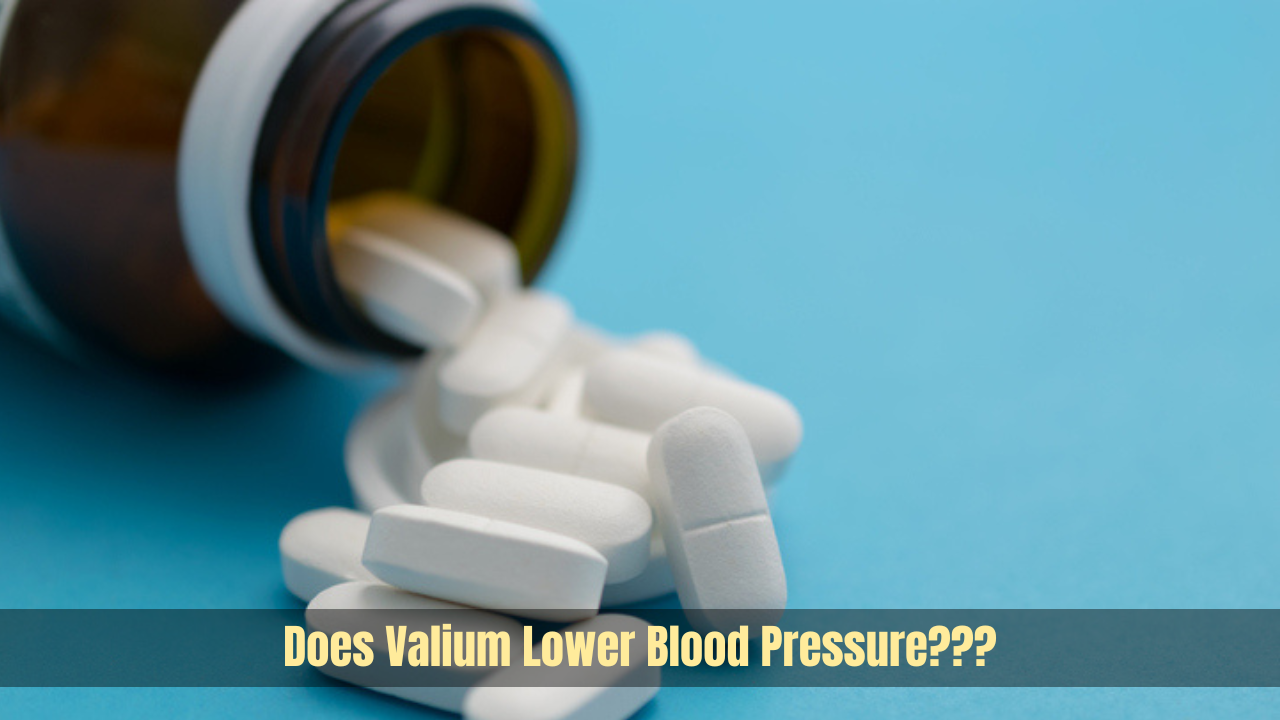When it comes to medications like Valium (diazepam), most people associate them with anxiety relief, muscle relaxation, or even seizure control.
But what about its effects on blood pressure? If you’ve ever wondered whether Valium can lower your blood pressure, you’re not alone. Many people are curious about whether this widely prescribed benzodiazepine has any impact on cardiovascular health.
Blood pressure is a vital sign that fluctuates based on stress levels, physical activity, and overall health. Since Valium is a central nervous system depressant, it has the potential to relax the body and, in turn, lower blood pressure.
However, is this effect significant enough to consider it a treatment for hypertension?
Or is it merely a side effect of its calming nature?
This article will break down everything you need to know about Valium’s impact on blood pressure. We’ll explore how it works, its effects on the nervous system, and whether or not it’s a suitable option for managing hypertension.
We’ll also discuss safer alternatives for blood pressure control and the risks of relying on Valium for this purpose. By the end, you’ll have a clear understanding of whether Valium plays a meaningful role in regulating blood pressure or if it’s best left to its intended uses.
What is Valium?
Valium is a prescription medication that belongs to the benzodiazepine class of drugs. It’s primarily used to treat anxiety disorders, muscle spasms, seizures, and alcohol withdrawal symptoms.
Since its introduction, Valium has been one of the most widely prescribed drugs in the world, thanks to its fast-acting and calming effects.
How Does Valium Work?
Valium enhances the activity of gamma-aminobutyric acid (GABA), a neurotransmitter responsible for slowing down brain activity.
This results in a sedative effect, reducing anxiety, promoting muscle relaxation, and even inducing sleep. The relaxation effect on the nervous system is what leads some to believe that it can lower blood pressure.
Common Uses of Valium
- Anxiety and panic disorders
- Muscle spasms
- Seizure disorders
- Alcohol withdrawal symptoms
- Sedation before medical procedures
See Also: How Long Does Valium Last?
How Valium Affects the Nervous System
Valium works by calming the nervous system, which can indirectly influence blood pressure. When the body is in a relaxed state, the heart rate slows down, blood vessels widen, and blood pressure may slightly decrease.
However, this effect is typically temporary and not strong enough to be a primary treatment for high blood pressure.
Can Valium Cause a Drop in Blood Pressure?
Yes, Valium can cause a slight drop in blood pressure due to its sedative and muscle-relaxing properties. However, this effect is usually mild and varies from person to person.
Some individuals might experience dizziness or lightheadedness, especially if they stand up quickly after taking Valium.
Does Valium Help with Hypertension?
Although Valium may lower blood pressure temporarily, it is not an approved treatment for hypertension. Blood pressure medications like beta-blockers, ACE inhibitors, and diuretics are much more effective and safer for long-term management.
Relying on Valium for blood pressure control can lead to unwanted side effects and potential dependence.
Potential Side Effects of Valium
Like any medication, Valium comes with potential side effects, including:
- Drowsiness and dizziness
- Fatigue
- Muscle weakness
- Confusion or memory issues
- Low blood pressure (in some cases)
- Respiratory depression (in high doses)
Who Should Avoid Valium?
Valium isn’t suitable for everyone. People with the following conditions should avoid taking it or consult a doctor before use:
- Severe liver or kidney disease
- A history of substance abuse
- Respiratory disorders like COPD
- Sleep apnea
- Pregnant or breastfeeding women
Alternative Medications Specifically for High Blood Pressure
If you have high blood pressure, your doctor may prescribe medications like:
- Beta-blockers (e.g., Metoprolol)
- ACE inhibitors (e.g., Lisinopril)
- Diuretics (e.g., Hydrochlorothiazide)
- Calcium channel blockers (e.g., Amlodipine)
These medications are designed to regulate blood pressure safely and effectively.
Natural Ways to Lower Blood Pressure
If you prefer non-medication approaches, here are some lifestyle changes that can help:
- Exercise regularly – Even 30 minutes a day can make a difference.
- Eat a heart-healthy diet – Focus on fruits, vegetables, lean proteins, and healthy fats.
- Reduce sodium intake – Excess salt contributes to high blood pressure.
- Manage stress – Practices like meditation and deep breathing can lower blood pressure naturally.
- Limit alcohol and caffeine – These substances can spike blood pressure if consumed in excess.
The Final Thoughts
While Valium can lower blood pressure as a side effect, it is not a reliable or recommended treatment for hypertension. Its sedative properties may cause a temporary drop in blood pressure, but long-term use can lead to dependence, dizziness, and other health risks. If you’re concerned about high blood pressure, it’s best to speak with a doctor about proper medications or lifestyle changes tailored to your needs.
Can Valium be used as a primary treatment for high blood pressure?
No, Valium is not an approved medication for treating hypertension. It may cause a temporary drop in blood pressure, but it is not a long-term solution.
How long does Valium affect blood pressure?
The effects of Valium typically last between 4 to 6 hours, but its impact on blood pressure is mild and temporary.
Is Valium safe for people with heart conditions?
People with heart conditions should consult their doctor before using Valium, as it may cause changes in heart rate and blood pressure.
Can Valium cause dangerously low blood pressure?
In some cases, Valium can lead to a significant drop in blood pressure, especially if taken in high doses or combined with other depressants.
What should I do if I experience a drop in blood pressure after taking Valium?
If you feel dizzy or lightheaded after taking Valium, sit or lie down and stay hydrated. If symptoms persist or worsen, seek medical attention immediately.


0 Comments